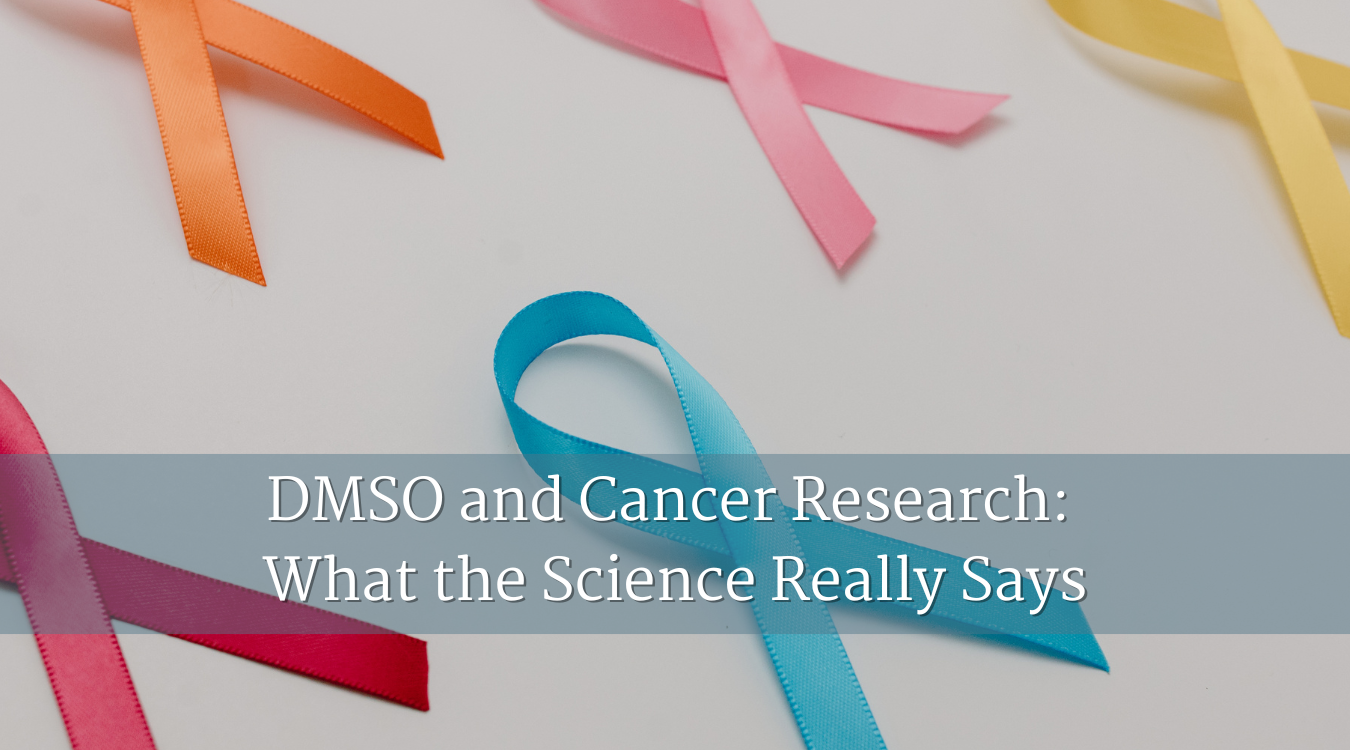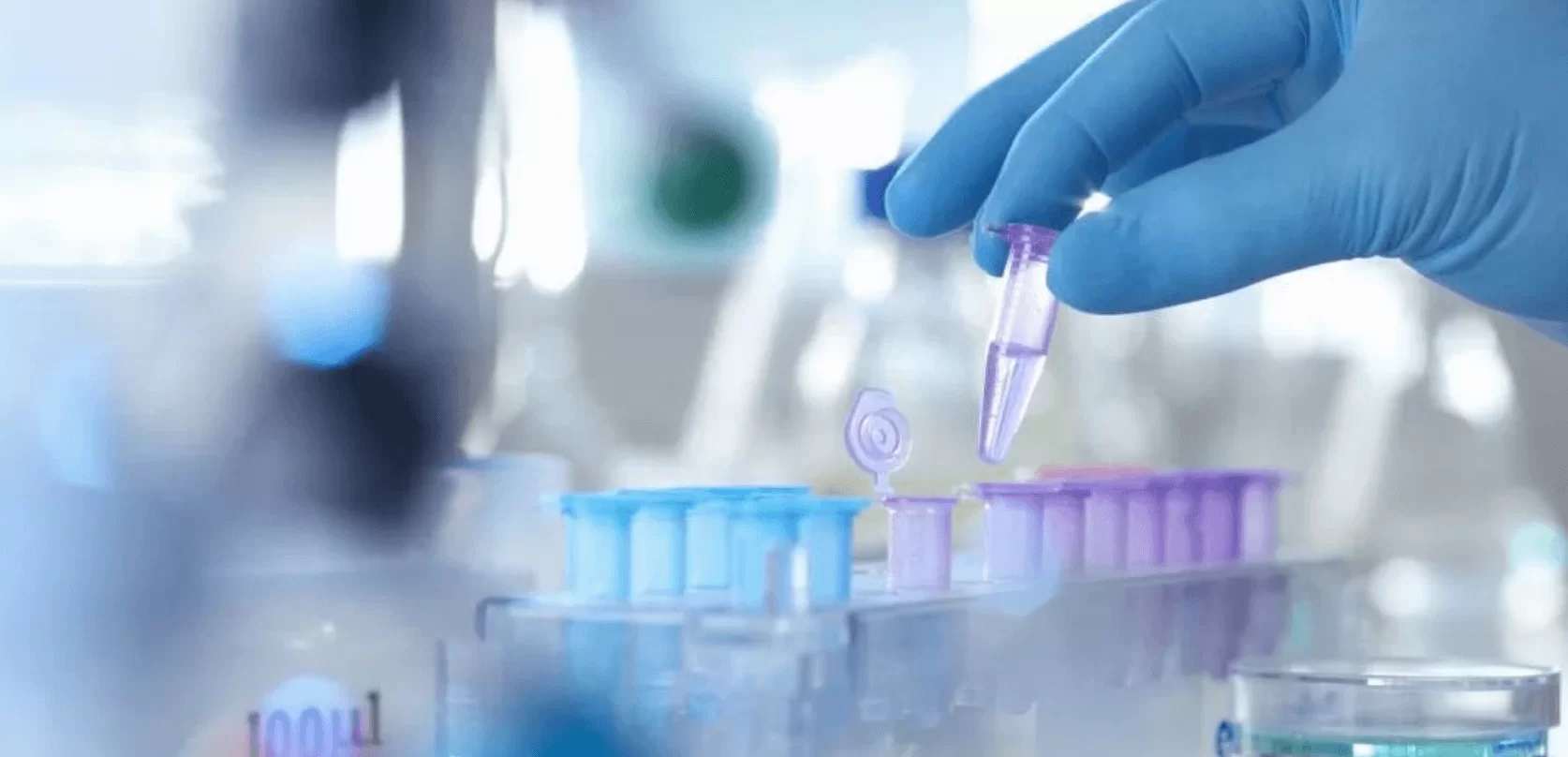
Understanding the Interest in DMSO and Cancer Research
Cancer touches nearly every family, and the search for better treatments often leads people to explore experimental or alternative compounds. DMSO (dimethyl sulfoxide) sometimes enters this conversation because of its unique ability to penetrate cells and carry other substances with it.
But what does the research really say? And where are the boundaries between hope, hype, and hard science?
🔬 Research Roundup
-
Laboratory Studies: In petri dishes, DMSO has shown the ability to influence how certain cancer cells grow and divide. Some studies suggest it may slow proliferation, while others note it can actually stimulate cell activity depending on the dose.
-
Combination Therapy Research: DMSO has been studied as a “carrier” — helping other drugs enter cells more effectively. In experimental cancer models, this role is seen as potentially useful, but results are inconsistent.
-
Animal Studies: A few animal models suggest DMSO might reduce tumor growth when paired with specific agents. However, the data is mixed and far from conclusive.
-
Human Trials: At present, there are no large, well-designed clinical trials showing DMSO alone is effective against cancer. The research remains preliminary and exploratory.
👉 Bottom line: Interesting lab findings, but no proven human benefit yet.
🧑⚕️ Oncologist’s Perspective
If you asked a cancer specialist, they would likely say:
-
DMSO is not an approved treatment for cancer.
-
Any potential benefit seen in the lab does not translate directly to patients.
-
Relying on DMSO instead of proven therapies could be dangerous.
As one oncologist put it: “DMSO is a fascinating solvent in research settings, but it is not a cancer therapy.”
🗣️ Why Patients Explore It
-
Some are drawn to DMSO’s reputation as a “penetrating” agent, believing it might unlock therapies.
-
Others hear anecdotal reports online of symptom relief, such as reduced pain or inflammation.
-
For many, the attraction lies in hope when mainstream options feel limited.
These stories are powerful, but they should not be confused with clinical evidence.
❌ Myths vs Facts
-
Myth: DMSO cures cancer.
-
Fact: No scientific evidence supports this claim in humans.
-
-
Myth: Because it helps drugs enter cells, it automatically makes them more effective.
-
Fact: Drug absorption is complex; DMSO can sometimes even alter drug action unpredictably.
-
-
Myth: It’s safe because it’s natural.
-
Fact: DMSO is a synthetic solvent; while generally low in toxicity, it carries risks.
-
⚖️ Strong Safety Caution
-
Never replace medical treatment with DMSO. Doing so could delay proven therapies.
-
Quality matters: Only pharmaceutical-grade DMSO should be considered for any medical use.
-
Side effects: Skin irritation, odor, and potential drug interactions are real concerns.
-
Medical supervision essential: Always consult a qualified professional — especially with something as serious as cancer.
✨ The Bigger Picture
DMSO has unique properties that make it valuable in research labs. Its ability to penetrate tissues and carry molecules has sparked scientific curiosity, including in cancer studies.
But as of today, it remains just that: a research tool, not a treatment.
For patients and families facing cancer, DMSO should never be viewed as a substitute for medically validated care. Instead, its story is a reminder of how science continues to search for new answers — sometimes in unexpected places.
🔗 Related Reading
-
Related: What is DMSO and How Does It Work?
-
Related: DMSO and Inflammation
-
Related: DMSO and Antioxidants




 DMSO and Fibromyalgia: Can It Ease Widespread Pain?
DMSO and Fibromyalgia: Can It Ease Widespread Pain?
 DMSO and Inflammation: The Science, Benefits, and Risks Explained
DMSO and Inflammation: The Science, Benefits, and Risks Explained














